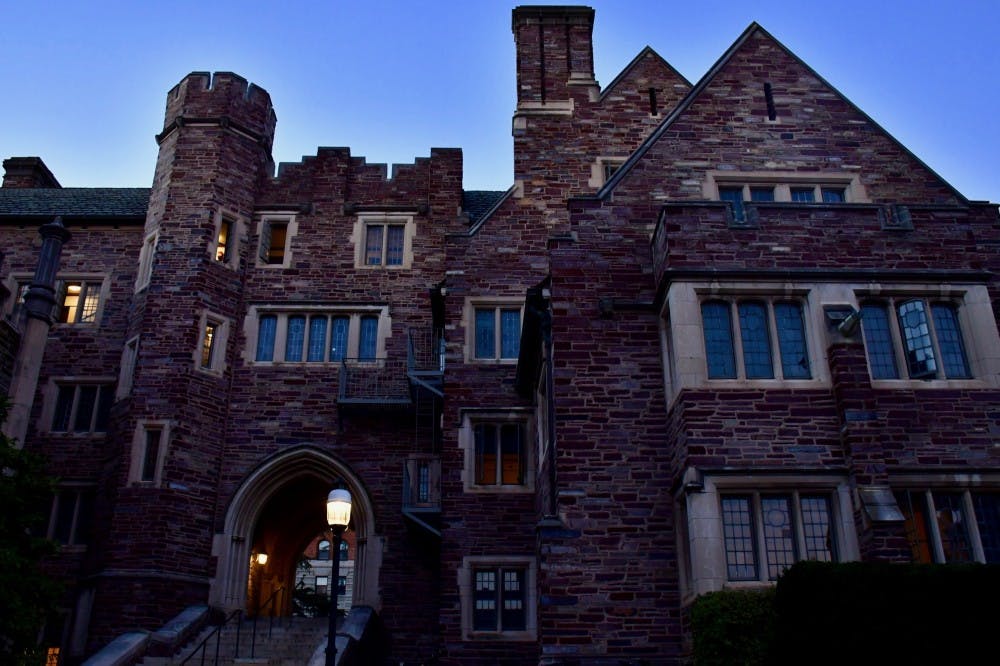It doesn’t take much to form a habit. Many people once believed that only 21 days of repeating a certain behavior will turn it into a habit, while according to researchers, every habit starts with a psychological pattern called the “habit loop,” a three-step process that first engages the decision-making part of your brain. Then, after some repetition, the behavior becomes second nature. Nevertheless, whether we like it or not — and whether they are bad or good — we are particularly talented at forming habits. In the long run, those habits are incredibly important for coping with changes, providing structure in a busy life, and motivating us simply to get out of bed every morning. However, habits can also be incredibly important in hurting us if we have the wrong ones.
Even for first-years, having been at school for three months now — and for others, longer — it’s safe to assume we each have a particular routine we’ve found that best allows us to navigate the particularly stressful, sleep-deprived world of high-achieving academia. But what happens when the seemingly helpful habits we form are actually detrimental to our overall academic experience at Princeton?
It’s possible that in some instances we end up settling into a regimen that does the bare minimum to make sure we just make it through the ridiculous requests of classes and professors. Sometimes our habits may prevent us from setting goals and challenging ourselves. We find it easy to be in the habit of simply surviving and not thriving. One could even say we’ve fallen into the habit of being mediocre when we know we are capable of more.
The majority — if not all — Princeton students are used to flourishing in a scholastic setting. Thus, when we first receive grades or feedback lower than expected, it can be both a bit of a shock and an opportunity to reevaluate priorities. This reevaluation leads to new habits that can create an illusion we are okay with — like “C’s get degrees” — when deep down, it is our nature that consistently motivates our desire to overachieve. Thus, not only does accepting a C become harder than once thought when we are actually faced with the grade, but we also find ourselves unsure of our qualifications and abilities.
Is the outcome of our Princeton careers really determined by the habits we form within the first few months of school during our first year? Are we trapped in a cycle where we’re now defined academically by our first official results? Sure, each semester is a new opportunity to improve our way of learning material and adapt our approach to classes, but it’s easy to revert back to a way of living that does not require more effort than truly necessary. It almost seems counterproductive to change a system that has so far not completely wrecked one’s GPA and social life — even if both could be improved — and the individual is forced to choose between sleep, success, and soirées. Of course, each person has their own unique circumstances and experiences. For some, their choice of classes and conditions in their personal life has greater effects on their academic results than on their routines, and it is their decision how to define their comfort level and achievements. It also doesn’t help that Princeton isn’t particularly known for giving out A’s.
But for those who can’t seem to figure out exactly what is preventing them from finding balance, start by looking at the habits you’ve formed. Saying you’re going to simply “stop procrastinating” doesn’t solve the problem. Maybe for a couple days — a week at the most — you are diligent and motivated and actually don’t procrastinate, but what happens when you’re tired or ill or feel like you’ve been missing out on events happening around campus? You’ll likely fall back into old patterns.
That’s when it’s more beneficial to rely on habits you’ve formed that make it hard to ignore an amount of work you have or certain chores to check off. In a way, by looking at issues through the perspective of “what habit can help improve this situation?” you are using positive reinforcement in your behavior rather than negative restrictions that will only last for so long.
It could be something as easy as always going to the library at a certain time each day, always getting the work done for a class that you know isn’t too difficult before you go to dinner, or just setting reminders to accomplish small tasks throughout the week. Take the opportunity over the next break to plan how to use habits to your advantage. After spending so much time and effort to get to Princeton, why not go one step further and create a system that will guarantee you aren’t facing burnout by mid-semester? We were lucky to have multiple breaks this fall semester, but the spring term will require a new level of grit, given its more strenuous schedule.
Be proactive and don’t let your unproductive habits determine how you live the rest of your years here. Instead, determine which habits will let you look back at your time at Princeton knowing you did everything you could to truly have a complete, once-in-a-lifetime experience.
Brigitte Harbers is a first-year from New York, N.Y. She can be reached at bharbers@princeton.edu.









